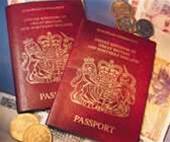
According to an NAO report, serious questions remain unanswered concerning the ability of passport readers to cope with the new documents in high-volume situations.
The report follows recent admissions that the new passports are only guaranteed to work for two years.
When the ePassport project closes in a few months' time, the total set up costs are expected to be £61m. But the additional cost of producing the electronic element of the passports is estimated at £195m between 2005/06 and 2010/11.
As a result, the fee for a standard adult passport went up on 5 October from £51 to £66 and from £34 to £45 for a child passport.
The NAO also has reservations about the effectiveness of the new passport readers. UK ePassport devices currently take around eight seconds to read an ePassport chip, and the performance in high volume situations is unknown.
Although the UK ePassport has been subjected to a range of tests, its ability to withstand normal usage for the full 10-year passport lifespan is unproven.
Because of the newness of the technology, the chip and antenna within ePassports are guaranteed for only two years.
Between May 2003 and the end of November 2006, the Identity and Passport Service spent £4.9m on full-time consultants working on the ePassports project.
But the NAO believes that the use of temporary consultants risks the loss of institutional knowledge for follow-on projects, such as second-generation ePassports and identity cards.
Sir John Bourn, head of the NAO, said: "The full security benefits of electronic passports will not be realised until UK border control readers are fully upgraded, and it is only then that we will know the impact of this new technology on travellers.
"To ensure that future projects deliver value for money, the Identity and Passport Service should aim to improve its engagement with other parts of government, and develop greater in-house expertise to reduce its reliance on external consultants."
£1 = AUD$2.5 approx.




_(20).jpg&h=140&w=231&c=1&s=0)





 iTnews Benchmark Awards 2026
iTnews Benchmark Awards 2026
 iTnews Executive Retreat - Security Leaders Edition
iTnews Executive Retreat - Security Leaders Edition
 iTnews Cloud Covered Breakfast Summit
iTnews Cloud Covered Breakfast Summit
 The 2026 iAwards
The 2026 iAwards












_(1).jpg&h=140&w=231&c=1&s=0)



